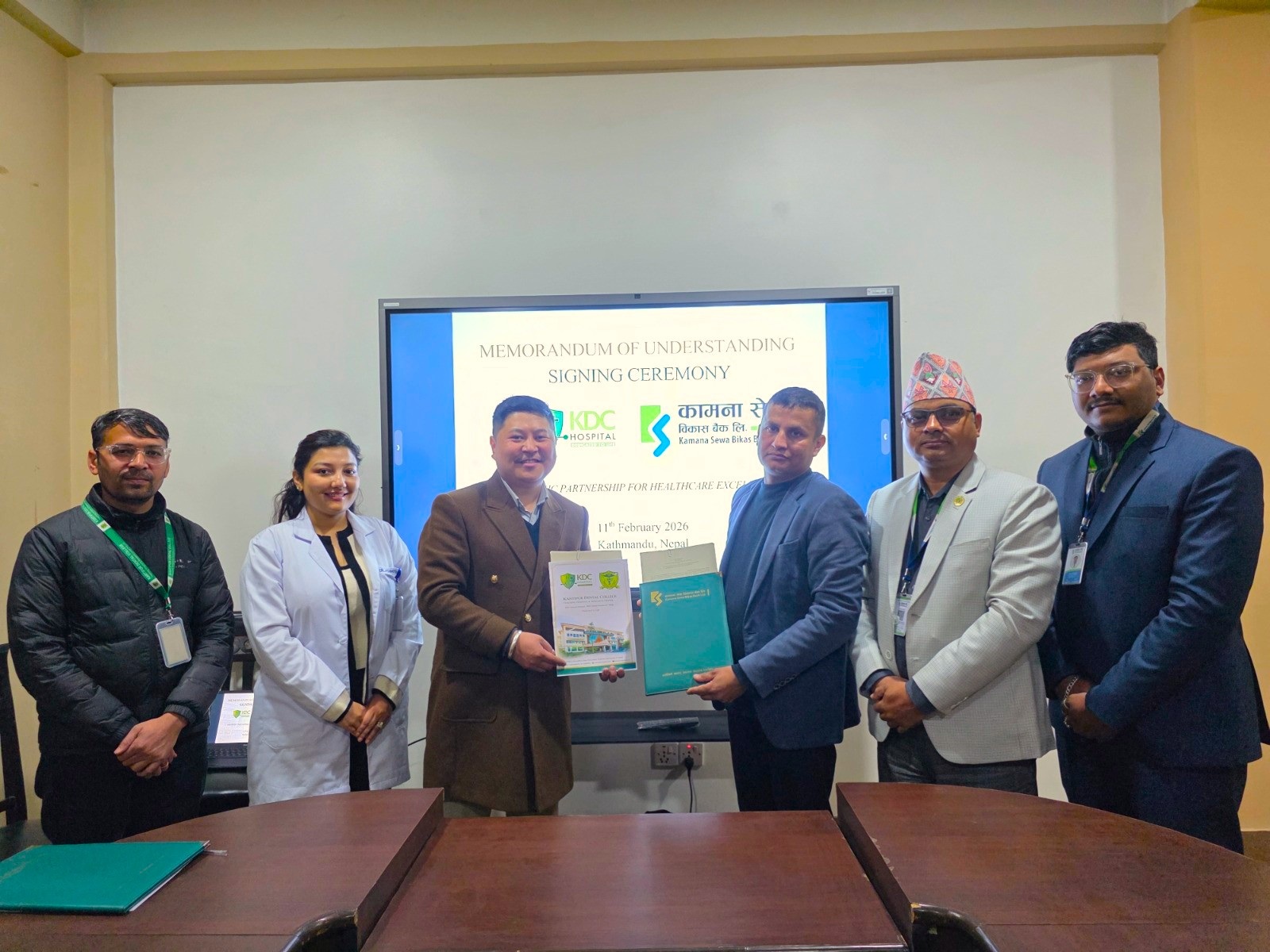Climate-Smart Crop Protection Workshop: Nature-Based Solutions For Asia-Pacific Agriculture
15th July 2025, Kathmandu
A regional training workshop on Climate-Smart Crop Protection Focusing on Nature-Based Solutions concluded successfully in Pokhara, in presence of government officials, technical experts, researchers, development partners, and champion farmers to exchange knowledge and build regional capacity on sustainable and eco-friendly and key stakeholders from across the Asia-Pacific region. The event was organized by the Food and Agriculture Organization of the United Nations (FAO), in collaboration with the Government of Nepal.
Climate-Smart Crop Protection Workshop
Mr Ken Shimizu, FAO Representative for Bhutan and Nepal thanked Gandaki Province government and emphasized the urgency of addressing climate-related threats to agriculture, biodiversity loss, and chemical overuse with renewed focus on sustainable plant protection practices as a cornerstone of resilient agriculture.
Dr Yubak Dhoj GC, Senior Plant Production and Protection Officer at FAO’s Regional Office for Asia and the Pacific, highlighted the critical need to integrate indigenous and nature-based approaches into national crop protection strategies. “Nature-based solutions offer a pathway to mitigate the environmental impact of agriculture while improving productivity,” he said.
The event showcased success stories from region, including that of Shakuntala Chaudhary, a farmer from Pokhara who has transitioned to biological pest management using Trichoderma and organic sprays. “Chemical pesticides were no longer effective,” “After training, I found that natural methods were more sustainable and easier to apply.” she said.
Mr Basudev Regmi, Secretary of the Ministry of Land Management, Agriculture and Cooperatives, Gandaki Province acknowledged the growing challenges farmers face due to climate change and prioritized the importance of viewing these challenges as opportunities and called for a collaborative, integrated approach to develop sustainable solutions.
Dr. Durga Devkota, Chief from college of Natural resources management emphasized the importance of scientific approaches to crop protection and stressed the need to educate students and farmers on producing food without relying on chemical pesticides. Mr Bhoj Raj Sapkota, Chief of the Plant Quarantine and Pesticide Management Centre underscored the need for science-backed solutions and farmer-focused education. He appreciated to FAO for its continued support in strengthening Nepal’s plant protection systems. Professor
Honorable Padma GC Shrestha, Minister for Land Management, Agriculture and Cooperatives of Gandaki Province highlighted the growing risks posed by climate change and overreliance on chemical inputs. She advocated for a shift toward plant-based and biological alternatives, calling it vital for the long-term sustainability of Nepali agriculture.
Country delegations from Bangladesh, Cambodia, Vietnam, and Nepal presented national experiences in implementing nature-based solutions. Discussions covered regulatory reforms, pesticide registration, field trials, biocontrol innovations, and efforts to improve lab capacity and farmer outreach.
Ms Shanta Karki, Chief of the Central Agricultural Laboratory, emphasized that the project aims to address climate-induced agricultural challenges such as land degradation, biodiversity loss, and disease and pest outbreaks through the promotion of nature-based solutions. She noted that these approaches are central to building climate-resilient and sustainable farming systems.
Experts Highlight Nature-Based Solutions for Climate-Smart Crop Protection in technical session
Mr Banaras Khan from FAO-RAP introduced the regional project on Nature-based Solutions (NbS) in agriculture, designed to reduce the environmental impact of farming, particularly greenhouse gas (GHG) emissions, land degradation, and biodiversity loss. Implemented in Bangladesh, Cambodia, Nepal, and Viet Nam, the initiative aims to strengthen climate-resilient agriculture by promoting sustainable, ecosystem-based practices.
Dr Mohammad Sheaf Ullah, Bangladesh’s representative, outlined the country’s efforts to enhance crop protection through Nature-based Solutions (NbS). With agriculture contributing 11.38% to GDP and high pesticide usage, he stressed the need to shift from chemical to biological methods.
Representing Cambodia, Mr Oeurn Samoul, Senior Officer at the General Directorate of Agriculture, shared progress in pesticide management, including a technical document and an English script for desert locust animation. Cambodia has also monitored natural enemies of Fall Armyworm in maize and conducted several workshops. Lessons learned highlight climate change’s influence on pesticide use, the value of biological control, and the need for strong policies, knowledge sharing, and improved monitoring.
Mr Pham Toan, National Project Specialist from FAO Vietnam, outlined the country’s efforts to adapt agriculture to climate change, targeting an agricultural GDP growth of 3.83% by 2025 to legal frameworks governing protection product management, developing CO₂-reducing rice production models that utilize biopesticides, and preparing relevant training materials.
Dr Shanta Karki, Chief of the Central Agricultural Laboratory (CAL), Nepal, presented the project’s key outputs, including a policy brief, standard operating procedures (SOPs) and guidelines, and technical awareness materials produced by the project support. She also highlighted capacity-building efforts and support for the development of private laboratories focused on nature-based solutions for crop protection and productivity enhancement, particularly for mandarin oranges and tomatoes.
A technical sharing session held as part of a regional workshop on climate-smart crop protection brought together agricultural scientists, policymakers, and practitioners to discuss innovations and challenges in the use of biopesticides, biofertilizers, and nature-based solutions for sustainable farming systems in the region.
Mr Salik Ram Adhikari, Chief of the Plant Protection Laboratory in Gandaki Province, emphasized the economic and agricultural importance of tomatoes and mandarin oranges, while outlining key challenges in their cultivation. He presented field-level research efforts involving the application of Trichoderma, biopesticides, and organic nutrients in tomato cultivation, aimed at enhancing ecological pest control and improving crop health.
Mr Drona Budhathoki provided an overview of the current status of biopesticides and biofertilizers in Nepal, noting both opportunities and ongoing regulatory challenges. He highlighted the progress under the Pesticide Management Act (2019) and the Pesticide Management Regulation (2024), and presented data on the import of chemical and biological pesticides. He also detailed recent actions taken to improve the biopesticide registration process.
Further expanding on the topic, Mr Netra Prasad Bhatta discussed the production and import of biofertilizers in Nepal. He underlined their critical role in enhancing soil fertility and crop productivity while highlighting the need for improved quality control and standardization. Mr. Bhatta urged greater promotion of biofertilizers in organic agriculture and called for increased investment in research and development.
Prof. Sundar Tiwari from Agriculture and Forestry University presented research on climate-smart crop protection in Nepal. He drew attention to emerging agricultural threats, including pest migration to higher altitudes and the spread of new plant diseases due to climate change. Dr. Tiwari proposed a range of strategies such as crop manipulation, integrated pest management (IPM), improvement of soil health, and the integration of digital tools.
Dr Debraj Adhikari presented nature-based crop management practices in Nepalese citrus cultivation, particularly in the hilly regions. He showcased sustainable, eco-friendly approaches rooted in indigenous knowledge systems including biological control of pests and diseases, organic nutrient management, agroecological design, pollinator conservation, and the use of disease-tolerant rootstocks and grafting methods to combat soil-borne diseases and citrus greening (HLB).
The team had review of a draft Regional Biocontrol Guideline, aimed at harmonizing the registration of biopesticides and indigenous products across countries and raised concerns about regulatory delays, lengthy trial periods, and called for stronger regional coordination and improved quality control frameworks.
The participants had field visits to Chaudhary Agro Farm and a private mandarin orchard in Pokhara to observe practical applications of nature-based agricultural techniques, including composting, organic pesticide use, and biological pest control. The delegation also toured the Plant Protection Laboratory in Gandaki Province.
The workshop concluded with a commitment to enhance regional cooperation, ensure investment in research, and scale up the adoption of nature-based crop protection practices for building climate-resilient farming systems, reducing chemical dependence, and promoting sustainable and environmentally responsible food systems in the region.
For more:- Climate-Smart Crop Protection Workshop







